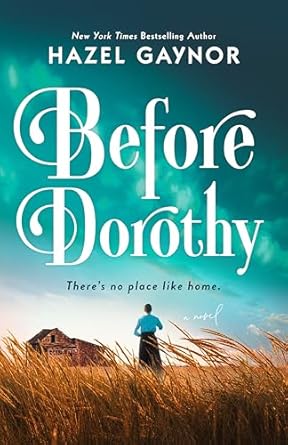 I recently posted my review on Amazon for the book Mother of the Believers. In my review, I expressed my difficulties reconciling the contradictions of these religious men and their actions: raping girls taken prisoner and made slaves, "justice" served by cutting off hands, etc. Following my review, I was honored to receive a comment on my review by the author Kamran Pasha, and I wanted to repost it here to give him a moment to express his side.
I recently posted my review on Amazon for the book Mother of the Believers. In my review, I expressed my difficulties reconciling the contradictions of these religious men and their actions: raping girls taken prisoner and made slaves, "justice" served by cutting off hands, etc. Following my review, I was honored to receive a comment on my review by the author Kamran Pasha, and I wanted to repost it here to give him a moment to express his side.Here is the author's response:
Thank you for your kind words about my novel "Mother of the Believers." I must admit that I am saddened that you came away from my book with a mixed view of Prophet Muhammad. I am a believing Muslim and I wrote the novel to explain his life in context. I think if you compare the Prophet's life and actions to those of the great biblical figures such as Moses, Joshua and King David, you will see that he exceeded the moral standards set by these leaders who lived in a similar lawless desert world. The Prophet was faced with the dual challenge of teaching about God and creating order out of a lawless society. So he had to make difficult military and legal decisions in order to end the bloodshed and create a functioning society. Jesus, on the other hand, did not have to worry about being both a spiritual teacher and a policeman, as he was preaching in a civilized world controlled by the Roman Empire. Jesus said "Render unto Caesar" because there was a Caesar. Prophet Muhammad had to create a civilization from scratch and play the role of both spiritual teacher and Caesar at once. So he should be judged in that context, and I for one believe he showed remarkable wisdom and compassion in a very barbaric world. Please contact me through my website at http://www.kamranpasha.com/ if you would like to discuss this further.Here is also a video of the author talking about his book and why he wrote it, and why he was drawn to the main character Aisha.
Thanks so much to the author for his comments. I will take them to heart, and am always happy to share opinions and beliefs with others.
And I still recommend the book Mother of the Believers. It really is an action-packed story and very well-written.



















4 comments:
Thanks for posting this response. I found this book to be an interesting read. I think my main issues with it was that very little of the book was actually about Aisha, the titular character and that was disappointing.
It's interesting that he does not see the same contradictions you do. I understand his argument, but it sort of misses the point, right?
Thank you for kindly posting my response. I would be happy to continue this discussion with anyone who wishes to contact me through my website: www.kamranpasha.com
In response to stacybuckeye, I am not sure what "contradiction" I am not seeing. My book is very blunt about the primitive world in which Islam was born in. And I do not shy away from talking about Prophet Muhammad's humanity and portraying him as a mortal man with human feelings, strengths and weaknesses. That is why he was an effective teacher -- he was not some plastic saint who floated above humanity. He was like us and struggled with the same issues we do, and triumphed. That is why we can learn from him.
All of our religions were born in primitive worlds with different value systems. The Qur'an is frankly far more morally advanced than the Bible -- by a long shot. If you read the Old Testament, God as He is portrayed by the Biblical writers commands the Israelites to commit genocide against their enemies, not even sparing women, children or babies of infidels (see the Book of Joshua and 1 Samuel 15:3).
Women in the Bible have almost no rights whatsoever. Women cannot own property or inherit, and cannot even testify in court. The prophets and kings of Israel are proudly polygamous with no restriction or rules around how to treat women in their harems (King Solomon had 700 wives and 300 sex slaves). By modern standards, the heroes of the Bible are not particularly heroic or moral people.
By contrast Prophet Muhammad, who lived in the same lawless and brutal world as these Biblical figures, advanced morality father than did either Judaism or Christianity. He gave women the right to inherit, own property, and testify in court. Jewish and Christian women in the West did not receive the right to own property or inherit until the 19th century!
The Prophet placed all kinds of restrictions around polygamy to make it very difficult to maintain as a lifestyle. And he followed strict rules of war that were revolutionary at the time -- no killing civilians, no killing women and children, no killing priests or monks. The Christian Church in the Prophet's day sought to destroy every other religion on earth in the name of Jesus Christ, and had nearly wiped out Judaism. Prophet Muhammad, by contrast, guaranteed Jews and Christians freedom of worship as "People of the Book." Christians expelled Jews from Jerusalem -- Muslims let them return.
By every conceivable standard, Prophet Muhammad was more morally advanced than other religious leaders in his own lifetime, and was a quantum leap forward from the cruel and heartless prophets and kings of the Bible.
Yes, the Prophet fought wars and instituted some harsh punishments to create order out of chaos. But the Prophet followed strict rules of war, showed mercy to his enemies, and harsh punishments against crimes were far more lenient than those prescribed by the Bible (and rarely implemented in practice due to onerous legal requirements he instituted to prevent cruelty).
In his lifetime, women flocked to Islam and loved the Prophet as a man of gentleness and wisdom. Yes, he was polygamous (the norm in his culture, just like the Biblical world), but his marriages were primarily political alliances to bring together warring tribes and end bloodshed. Women viewed the Prophet as a gentle, compassionate man who treated them with dignity, not some macho Casanova.
All of this is in my book, and is based on historical truth. If someone reads my novel and comes away thinking Muhammad was a bad man, that Islam is a more violent or oppressive religion than Judaism or Christianity, then they are projecting their own issues on to the Prophet rather than seeing him for what he was.
I hope that my comments will engender further discussion. Perhaps the question is not whether I have "missed the point", but whether the point is that people are projecting their own prejudices on to Prophet Muhammad in a way that distorts and dishonors the truth.
I find this whole discussion thread very interesting and fascinating. I'm so impressed that the author has taken the time to address and try to discuss the questions...Very upstanding indeed!
Post a Comment